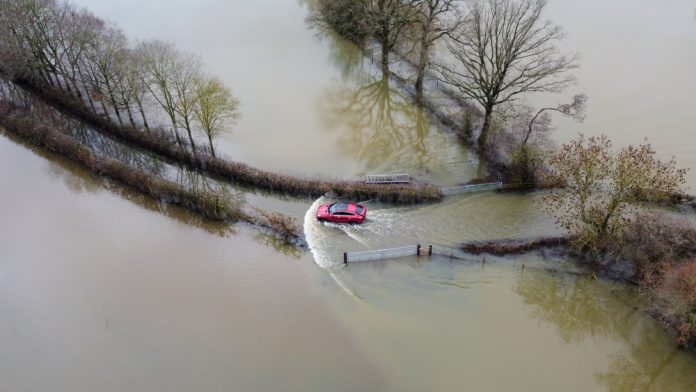The UK Environment Agency is urging the public to ensure they are prepared for a flood as the nation marks the annual ‘Flood Action Week’, which this year runs from 14-20 October.
This year’s Flood Action Week coincides with the one-year anniversary of Storm Babet, which brought significant flooding across the country.
According to the Met Office, Storm Babet saw the third wettest three-day period in a series for England and Wales since 1891.
Nearly 96,900 properties were protected by the Environment Agency during Storm Babet, but around 2,150 were flooded.
Why do we need a Flood Action Week?
As climate change brings more extreme weather, there has already been flooding this autumn.
Only last month, heavy rainfall led to the first major incident of the season, with almost a thousand properties flooded.
It followed the wettest 18 months on record in England up to February 2024.
Flood Action Week is all about showing people that they can easily take a few steps to reduce the devastation caused by floods to their homes and businesses, with around 5.5 million properties in England at risk from flooding.
Recent data suggests that nearly half the country is unsure of how to find information on local flood risks, making this campaign all the more important.
Caroline Douglass, Environment Agency Executive Director of Flood and Coastal Risk Management said: “We can’t always predict where the rain will fall or where flooding will occur, but we do know which areas are at risk.
“That is why we all must do our part by checking our flood risk and signing up for flood warnings this Flood Action Week.
“While the Environment Agency is stepping up our preparations to increase the nation’s resilience to flooding as we head into the winter, taking small steps today can immediately improve your own readiness.”
Reducing the dangers of flooding
The best way to protect yourself from flooding is by preparing early and knowing what to do in advance. Some of the actions people can take to reduce the dangers are:
- Check your long-term flood risk. This free service can help you determine the long-term flood risk for an area in England, the possible causes of flooding, and how to manage flood risk.
- Sign up for flood warnings by phone, text or email.
- Taking steps to protect yourself from future flooding—including storing important documents in a secure, waterproof location, taking rugs and small furniture upstairs, checking how to turn off your electricity and water, and preparing a flood kit.
Floods Minister Emma Hardy explained: “Through the recent launch of our Floods Resilience Taskforce, this government is taking decisive action to accelerate the development of flood defences and bolster the nation’s resilience to extreme weather.
“The Environment Agency and its partners are continuing to help communities become more resilient to extreme weather and rising sea levels, but authorities can never stop all flood impacts.
“But this Flood Action Week, we must all be proactive in taking steps to protect ourselves by checking our flood risk and signing up for flood warnings.”





